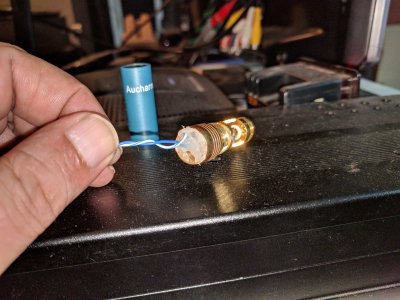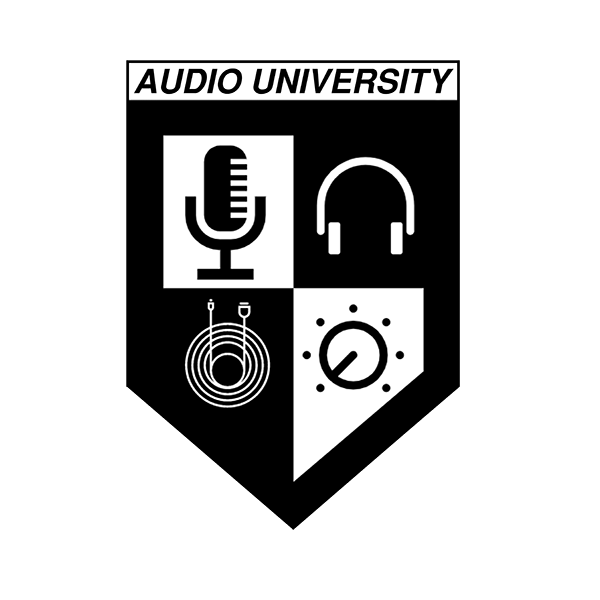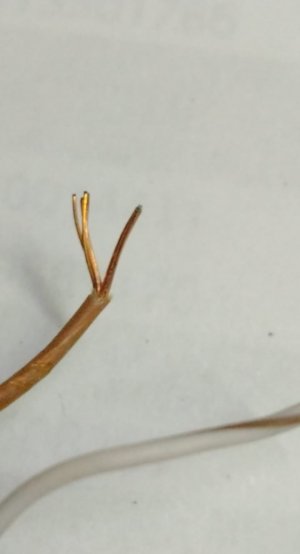Hello,
For my DIY amplifier I want to make a 3.5mm stereo (male) to RCA (left and right male), which I will use to take audio out (3.5mm jack) from my laptop and provide audio input (RCA female) to amp.
I have these RCA Male Plug from amazon and old headphone's 3.5mm stereo connector.
What is the best wire to make this cable? Normal 24 gauge silicon wire? Or any other special wire?
In the past, I have used wires stripped from old LAN cables for speaker wire extension and they worked without problem. Is that a good choice here?
Some internet articles advising to use shielded wire for all audio based projects. I am not able to find these online (may be I am not understanding what it is)
Any advice?
For my DIY amplifier I want to make a 3.5mm stereo (male) to RCA (left and right male), which I will use to take audio out (3.5mm jack) from my laptop and provide audio input (RCA female) to amp.
I have these RCA Male Plug from amazon and old headphone's 3.5mm stereo connector.
What is the best wire to make this cable? Normal 24 gauge silicon wire? Or any other special wire?
In the past, I have used wires stripped from old LAN cables for speaker wire extension and they worked without problem. Is that a good choice here?
Some internet articles advising to use shielded wire for all audio based projects. I am not able to find these online (may be I am not understanding what it is)
Any advice?




